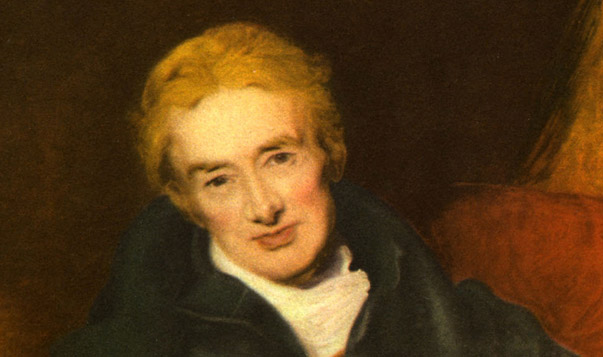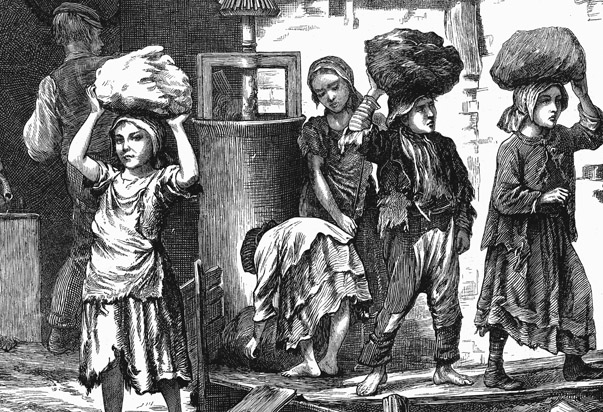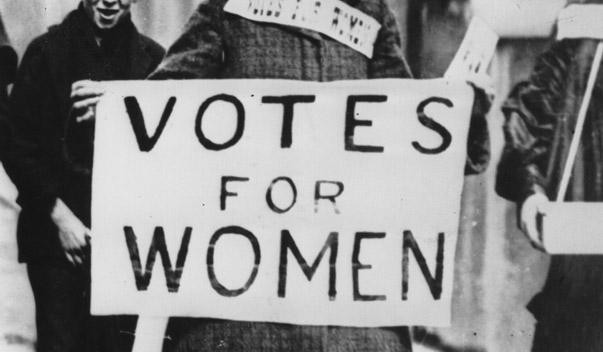The claim
“For it was Conservatives in previous governments that ended the slave trade, that stopped children working in factories and gave them universal education. They gave equal votes to women and equal rights to disabled people.”
George Osborne, 5 October 2015
George Osborne has just made his keynote speech to delegates at the Conservatives’ annual conference in Manchester.
As well as unveiling new policies for the rest of this parliament, the chancellor took a moment to look back, saying the party should be proud of its reforming history – citing a list of achievements from the abolition of the slave trade to votes for women.
A useful lesson in political history – or an attempt to rewrite it?
William Wilberforce: Abolitionist MP… Conservative?
Abolition of slavery
Mr Osborne said: “..it was Conservatives in previous governments that ended the slave trade…”
The slave trade was outlawed in the British Empire in 1807, decades before the modern Conservative party was founded in the 1830s.
In 1807 British politics was dominated by the Tories – the fore-runners of the Conservatives – and their rivals the Whigs, the precursors of the Liberal Party.
The Slave Trade Act of 1807 was not passed by a Tory government. It was introduced by the Whig foreign secretary Charles James Fox and passed by a national unity government headed by Whig prime minister Lord Grenville, the so-called “Ministry of All the Talents”.
In 1833 legislation was passed that abolished slavery altogether in most British territories. Again, this happened under the auspices of a Whig government – the great reforming ministry of Earl Grey.
That doesn’t mean we should try to write Tories and Conservatives out of history when it comes to campaigning against slavery, although historians are divided on how big their influence was.
There were certainly passionate abolitionists on both sides of the House of Commons, and the 1807 Act was passed by a massive 283 votes to 16.
William Wilberforce, the most famous abolitionist MP, whose campaigning led to the passing of both acts, has been claimed by modern Conservatives as one of their own, although he actually entered parliament as an independent.
Dr William Pettigrew from the University of Kent, an expert on the transatlantic slave trade, told FactCheck: “I think what Osborne is getting at there is Wilberforce being a particular kind of Tory.
“I can see how it is possible to put together that statement. It’s not a perfect statement but you could reach that view.
“There was a particular kind of sentimental Toryism that was resistant to the development of the slave trade.”
But abolition was a “cross-party issue”, he added. “There were sort of synergies there. I would hesitate to give it a clear and direct party political aspect in 1833.”
Professor John Oldfield, director of the Wilberforce Institute for the study of Slavery and Emancipation at the University of Hull, said: “Pitt, who was the nearest thing to a Conservative in this early period, had early supported abolition but refused or was unable to commit himself to the idea.
“İndeed, some might argue that Pitt’s death in 1806 cleared the way for abolition. So it’s hard to sustain Osborne’s argument, save for the looming presence of Wilberforce.
“But Wilberforce wasn’t a Conservative with a capital ‘C’, even if his politics were conservative with a small ‘c’. İn fact, in party terms he remained an independent, even if he was loyal to Pitt – and, of course, he retired from active political life in 1826.”
Child workers in a Midlands brick-yard, 1871
Children in factories
Apparently Conservatives also “stopped children working in factories”.
Various governments of different political colours tried to legislate to limit the number of hours children could work in the 19th century, with limited effect.
The Factory Act of 1833 (Whigs) banned children under the age of nine from working in factories and said under-18s could not work at night.
The Mines and Collieries Act 1842 (Conservatives) banned under-10s from working underground.
Subsequent pieces of legislation reduced working hours for child workers and increased the minimum age, but reform happened in a piecemeal way: by 1901, the minimum working age had only been raised to 12 (by the Conservatives).
It’s hard to single out one act of parliament that finally “stopped children from working in factories”, and some campaigners say Britain’s child labour laws are still inadequate.
You can leave and school and start working from 15 in England now, and Unicef says: “Child employment laws in this country are not adequate and… thousands of children are exposed to levels of risk which should not be acceptable.
Professor Emma Griffin from the University of East Anglia said Mr Osborne’s version of events was “not right at all… complete nonsense”.
She told FactCheck: “There were decades and decades of pieces of legislation passed by all sorts of different governments.
“And they didn’t ban children from working in factories. All the legislation did was to prevent really small children from working in factories.”
Education
Conservatives freed children from the factories and “gave them universal education”, according to Mr Osborne.
Child labour reform went hand in hand with reform of the education system in the 19th and 20th centuries, but again, progress was incremental and it’s hard to find one piece of law that suddenly provided universal education.
The Education Act of 1870 (Liberals) established school boards to set up schools across the country. Ten years later another Liberal Education Act made school compulsory for five to 10-year-olds.
In 1902 the Conservatives under Balfour substantially expanded the education system, and in 1918 the Liberals raised the leaving age to 14.
Again, there are dozens of small reforms over decades, carried out by all parties.
Perhaps Mr Osborne is thinking of the 1944 Education Act, which guaranteed free universal education. This was sponsored by the Conservative president of the board of education Rab Butler, but passed by a coalition government.
Equal votes for women
This is an easier win for Mr Osborne. Women aged 30 and over first got the vote in 1918, under a Liberal government.
But it wasn’t until 1928 that women were granted equal voting rights by an act passed by the Conservatives.
“Equal rights to disabled people”
We think what Mr Osborne has in mind here is the Disability Discrimination Act, passed by John Major’s Conservatives in 1995, which made it unlawful to discriminate against people with disabilities.
It was the Conservatives who also introduced the Disability Living Allowance in 1992 too, although the Conservative-led coalition was criticised by some campaigners for making changes to disabled benefits in the last parliament.






